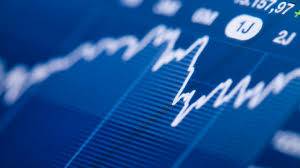Focus ON: The Great Pension Scheme Scam (W. Snyder)

The flurry of meetings held this week in Washington by the central bankers bodes no good for the global economy. The mainstream media have neglected it although the alternative media have not even if it is not clear what is going on. There are several possibilities: Deutsche Bank; Italian banks; China; energy bonds; falling bank profits. All the secrecy is disturbing.
What really worries the Fed, though, is the stock market, not the creative unemployment figures. This can be seen from the reticence of the Fed to raise interest rates. Ostensibly the reason for postponing rate hikes is that the economy would suffer and growth would be stifled. Of course it is clear that stock prices usually go up when interest rates go down because in that case fixed income is less profitable than equities. Stockholders can get dividends and also gain when stocks break out on the upside.
One real problem for the US is that most pension funds invest a high percentage of their capital in equities. Should the stock market suffer significant losses, a very large number of people would see their pension funds become smaller. A small correction can be suffered without undue worry, but a real crash that lasted for a long time would be critical. It is therefore important that the Fed ensure that the stock market flourish and continue to reach new highs.
This line of reasoning can explain why interest rates have remained so low so long and why QE was so popular with the Fed. The stock market was given a lot of support, and this helped to keep the pension funds afloat. Even so most US pension funds, which depend on returns of 8% yearly on capital, are still terribly underfunded. The alternative media do not tire of pointing this out. The result of such a situation is bankruptcy, and the city of Detroit is a good example.
The Fed thus finds itself confronted with a dilemma. The stock market is now overpriced with P/E rations much higher than can be justified by profits. The FANG prices demonstrate this clearly. The problem is that the Fed cannot do much more to push up stock prices other than resort to more QE. Negative interest rates will generate deflation, which will make the weight of the federal debt unbearable as it is already over $19 trillion and may reach $21 trillion before Obama leaves office. Any rise in interest rates will bankrupt the country since it will be impossible to service the debt.
The solution is for the Fed to buy Treasuries with new computer money and then cancel the debt. To spur growth “helicopter” money can be dropped on the populace. Adding together the low interest rate environment, various bouts of QE, overpriced stocks, a bond market that is no longer a real market (The example of the Japanese bond market shows what can happen when the central bank intervenes.), geo-political crises (Ukraine, Syria, Iraq, Libya), inflated central bank balances and “helicopter” money showered down from heaven, prudent investors have to decide if they are ready to increase the amount of risk in their portfolios in order not to see their wealth diminish. “Safe” sovereign bonds are no longer safe. The US dollar may not be a “safe haven” currency much longer with the IMF promoting SDRs as an international currency.
It is thus clear that the fragility of US pension funds has undue influence on the global economy and that a lot of Americans can look forward to a retirement plagued by austerity if not poverty. Wealth is not increased by typing numbers into a computer. QE is not a solution.
Walter Snyder

